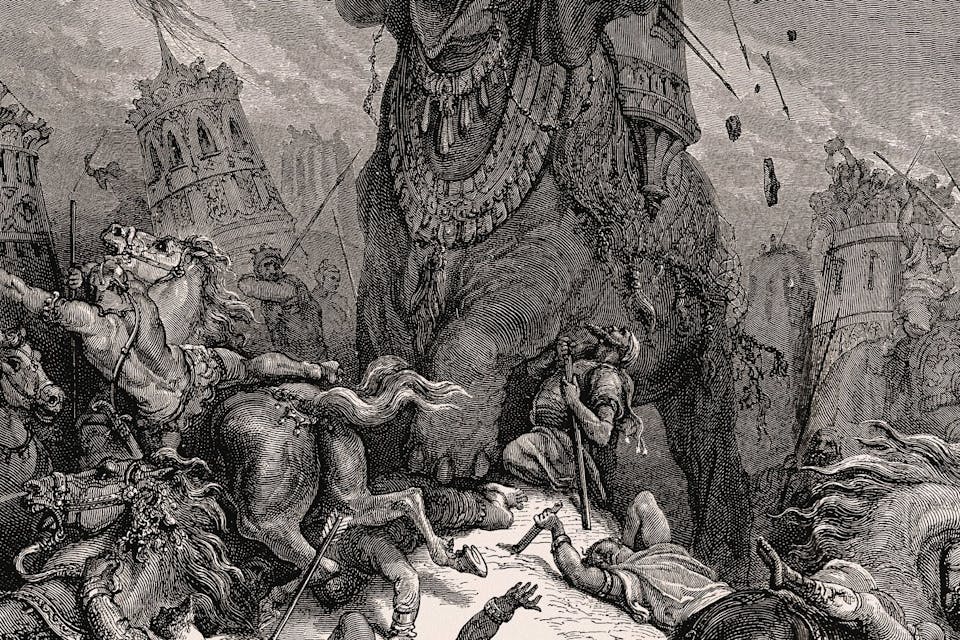
December 21, 2022
The Maccabees, the Greeks, and the Origins of the Conflict Between Hellenism and Hebraism
By PhilologosWhat the Maccabees called their enemies reveals much about how both cultures saw themselves and what the conflict between them meant for the world.
Got a question for Philologos? Ask him yourself at philologos@mosaicmagazine.com.
“In the days of Matityahu, . . . the wicked kingdom of Greece rose up against Your people Israel to make them forget Your Torah,” begins Al ha-Nisim, the “For the Miracles” prayer that is said during these days of Hanukkah. The revolt of the Maccabees was of course not a revolt against the country we call Greece, nor did “the wicked kingdom of Greece,” malkhut Yavan ha-r’sha’ah in the Hebrew of the prayer, rule that country. This kingdom was the Seleucid empire, a monarchy in west Asia founded by Seleucus I, a general in the army of Alexander the Great who took control of most of its vast Asian conquests after Alexander’s death in 323 BCE. Although the empire’s eastern territories were soon lost, its western half was still intact when Antiochus IV, Seleucus I’s great-great-great-grandson and the villain of the Hanukkah story, was crowned in its capital of Antioch in 175 BCE, eight years before the Maccabean revolt broke out.
Indeed, while Yavan is the word for Greece in both modern and pre-modern Hebrew, it did not in its earliest usage denote mainland Greece at all. This is clear from the genealogical lists in the tenth chapter of Genesis, which attempt to trace the descent of the known peoples of the earth following its repopulation by Noah’s sons after the flood. In dividing humanity into three major groups based on language, race, and geography—the descendants of Shem or the Semitic peoples of the Middle East, the descendants of Ham or the peoples of Africa, and the descendants of Yefet or the Indo-European peoples of southern Europe and Asia Minor—the Bible says of the latter: “The sons of Yefet were Gomer and Magog and Madai and Yavan and Tuval and Meshekh and Tiras. . . . And the sons of Yavan were Elisha and Tarshish and Kittim and Dodanim. These then split into the isles of the Gentiles, each according to its language and its family.”